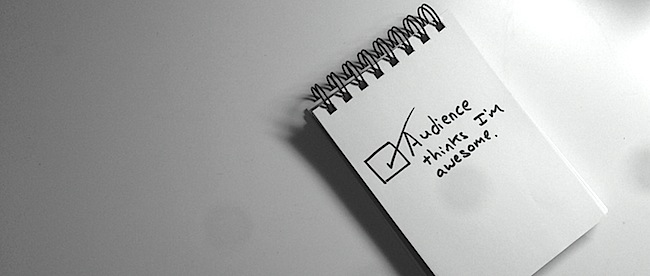
Most of us have an inflated idea of our ability to present effectively. It’s not our fault. Audiences lie. It is simply not possible that everyone gives great presentations. How do I know? When I flip the question and ask, “How many of you have attended a horrible presentation?” almost everyone raises his or her hand.
It seems logical that some presentations are great, some are horrible, and some are just ok. As presenters, we only hear positive feedback.
How can we become better presenters if we never hear about our failures?
We need a different way to evaluate the effectiveness of a presentation. Forget audience feedback. There is a better way. At Ovient, we have identified 4 specific criteria for evaluating the effectiveness of presentations (including our own). One of these factors is “Impact”: Does your audience act on your information or somehow change their behavior as a result of your presentation?
If I make a sales presentation and my customer says, “Great presentation. We will let you know,” I have failed. I am successful only if the customer signs the contract and engages. The audience must act. Impact matters.
Focus more on whether your presentation makes an impact and less on whether your audience compliments you. You will find this to be transformative both for your work and your career.